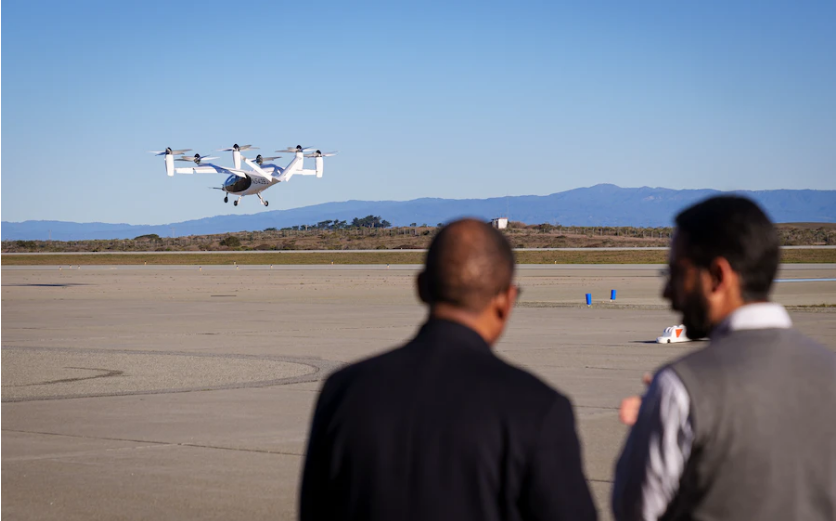The United States Air Force has signed a historic agreement to share data with the Federal Aviation Administration (FAA) on the testing and development of Advanced Air Mobility Vehicles (AAMs).
Capable of taking off and landing in challenging environments, these electric vertical take-off and landing (eVTOL) vehicles are of particular interest to the U.S. Military due to their myriad combat and support applications.
Agreement Allows Sharing of Data Between Air Force Research Labs and Regulators
In July, the FAA laid out the steps needed for any manufacturer of AAMs to meet regulatory requirements for actual flight. Dubbed “Innovate28,” the plan notes that developers sharing their information directly with the FAA will help expedite needed changes and tests AAMs need to meet airworthiness.
This recent agreement signed by AFWERX Prime, which is the commercial product accelerator of the Air Force Research Labs (AFRL), means that data from companies like Joby Aviation that have received money and support from the AFRL will share their data directly with the FAA as soon as it is available.
“A new era of aviation is taking off, and safe and efficient operations require collaboration,” said FAA technology development director John Maffei. “This data will help inform FAA certification efforts, policies, standards, and future airspace integration requirements.”
Advanced Air Mobility Vehicles Also Offer Commercial “Air Taxi” Solutions
To date, the Air Force has invested over $345 million in 36 private companies working on aspects of the AAM vehicle landscape. Of course, the commercial applications of Advanced Air Mobility Vehicles, often called “air taxis,” are also a prominent part of the plan for companies like Joby, who see them as an environmentally friendly solution to urban traffic congestion.
Notably, the company recently passed the second of five certification steps outlined by the FAA in February, moving them one step closer to commercial flight.
“Certification is an integral part of everything that an aerospace company does, and with the achievement of this critical milestone, we’re now able to confidently focus our efforts on closing the remaining certification plans and completing the testing required to certify our aircraft,” said Didier Papadopoulos, Head of Aircraft OEM at Joby at the time of the announcement. “We’re grateful for the FAA’s dedication to the safe introduction of eVTOL technology and their commitment to supporting continued US leadership in this sector.”
First Commercial Flights of AAMs Slotted for 2025
Regardless of potential commercial goals, the Air Force and other military branches are keen on the military applications of remote-controlled electric air vehicles that can take off and land in many of the most challenging environments. According to the AFRL, this goal drives their efforts to make AAMs commercial and combat viable.
“We are driving progress in propulsion technology, in manufacturing and materials, and in test and safety for a novel class of air vehicles,” said Col. Elliott Leigh, AFWERX director and chief commercialization officer for the Department of the Air Force. “Keeping this effort rooted in the United States, building our national security, and accelerating innovation for our Airmen and Guardians are all crucial for the Air Force, and we are humbled to be a part of this historic effort.”
While no formal timeline was given by the FAA or the people at AFWERX, Joby Aviation says they hope to clear the final certification hurdles and enter the commercial air taxi marketplace sometime in 2025. Ideally, this latest agreement will help the company and the AFRL meet that goal.
Christopher Plain is a Science Fiction and Fantasy novelist and Head Science Writer at The Debrief. Follow and connect with him on X, learn about his books at plainfiction.com, or email him directly at christopher@thedebrief.org.

